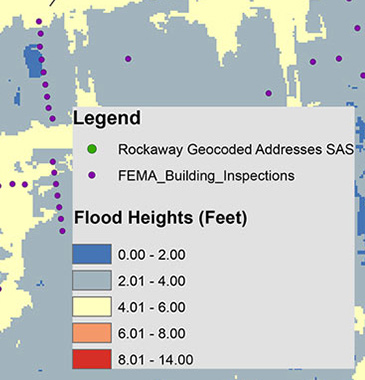Our Institute selects quality improvement programs based on priorities of the national agenda for improved health care delivery, as well as those specific to the Mount Sinai Health System. We have identified the following high-priority areas.
Institute for Health Care Delivery Science
Current Projects
For this quality improvement program we are:
- Determining the role of duration and type of antibiotics used in specific patient populations in Clostridium difficile infections
Using a large claims database we strive to quantify the association between duration and type of prophylactic antibiotics and Clostridium difficile infections in patients undergoing open colectomies and coronary artery bypass graft. In addition, we assess differences in patterns of use between different surgery types and hospitals.
- Analysis of unintended consequences of implementing the STOP SEPSIS initiative at Mount Sinai Hospital
We use data from electronic medical records to establish risk-benefit trade-offs arising from initiative; e.g., overuse of antibiotics, using data from the electronic medical records.
This quality improvement program entails:
- Assessing glycemic control in surgical ICU patients
We are identifying the clinical and economic impact of hyperglycemia in patients stratified by diabetes history and prior treatment, and to delineate optimal glucose management practices for each sub-group.
- Determining the comparative effectiveness of Novel Oral AntiCoagulants versus traditional treatment and prophylaxis in a variety of settings
We are examining thromboembolic and bleeding risk for prophylaxis regimens after orthopedic surgery. We are also characterizing the utilization of several Novel Oral AntiCoagulants in post-operative atrial fibrillation and analyzing their impact on thromboembolic risk using data from a national claims-based database. This research may contribute to a randomized trial comparing novel anticoagulants to warfarin in CABG patients with post-operative atrial fibrillation.
- Analysis of individual decision-making for surgical treatment of Ischemic Mitral Regurgitation
We are taking a decision-analytic approach as we evaluate the cost-effectiveness of different treatment strategies in moderate and severe ischemic mitral regurgitation.
- Review of anesthesia practices and patient safety outcomes after lung cancer surgery
We are studying the comparative effectiveness of two anesthesia practices (general and the addition of neuraxial to general anesthesia) in patients undergoing lung cancer surgery, detailing practices and perioperative outcome.
Projects in this quality improvement program include:
- Implementation of an Electronic Decision Support System to reduce overuse of radiologic testing
Our aim is to quantify changes—by provider, modality and department—in utilization of radiologic testing after implementation of a digital decision aid through the electronic health record system. We are using data from the Mount Sinai Hospital in this project.
This quality improvement program entails:
- Development of a Risk Stratification Tool to identify patients at risk for falls
We are documenting a set of patient-specific or environment-specific risk factors that identifies patients at increased risk of falls, using data from the Mount Sinai electronic medical records.
- Inpatient Falls and the Role of Sleep Medication Practices
Using a claims database across the Mount Sinai Health System, we are examining the role of sleep medication practices on the risk for inpatient falls
- Use of Premier Perspective Database in Comparative Effectiveness Research
- Overuse of Diagnostic Imaging at a Large Urban Hospital: A Retrospective Analysis
- Overuse of Diagnostic Imaging at a Large Urban Hospital System: A Randomized Control Trial
- The Validity of Claims Data on the Use of Opioids
- Effect of Formulary Restrictions on IV Acetaminophen Utilization at Mount Sinai Hospital
- Perioperative Management in Hepatic Resection: Comparative Effectiveness and Disparity Research
